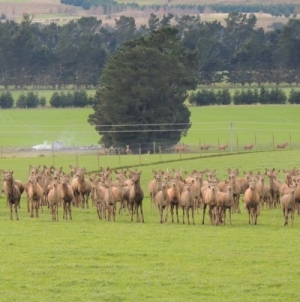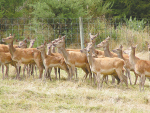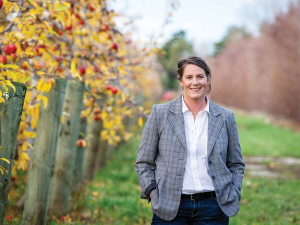The non-binding memorandum of understanding, to be signed today (March 23, 2015) by Deer Industry New Zealand (DINZ) chief executive Dan Coup and KGC chief executive officer Kim Jun-gi, will be witnessed by Prime Minister John Key. The signing will take place in Seoul following the signing of the Korea New Zealand Free Trade Agreement.
"For seven years our relationship with KGC has strengthened and has increasingly focused on the development of branded consumer products that include extracts from NZ velvet. In that time, KGC has developed a children's tonic that has become a household name in Korea, taking around 8% of NZ's velvet production," says DINZ chief executive Dan Coup.
He says the understanding formalises the relationship between DINZ and KGC. Each party will work with the other in good faith, recognising they will achieve more together than by working alone.
KGC will have access to research information held by DINZ and its research partners that is not subject to intellectual property or legal restrictions. KGC will continue to use NZ velvet in some of its products and will continue to develop new products that feature NZ velvet as a major ingredient.
"This is a true win-win and is a pointer to where we believe the future of the velvet industry lies – with close relationships between New Zealand suppliers and partners in markets like Korea, Taiwan and China who are embedded in the local culture and marketplace," says Coup.
The origins of KGC date back to 1899 when it was a monopoly managed from the palace of the Korean monarch. KGC in its current form was established in 1999 and it remains the market leader for sales of ginseng and other traditional health food products. It has hundreds of 'Cheong Kwan Jang' stores in Korea and a growing sales network across Asia and in the United States.
"We can take pride in the fact that New Zealand's reputation for the quality of its velvet and velvet science has been recognised by a company that has deep roots in Korean culture and history. Through Provelco, KGC's supplier, our farmers and processors have access to a highly reputable customer with strong market presence. For its part KGC has access to the world's best velvet – natural, safe and quality-assured – as well as our velvet science."
As part of the relationship with DINZ, KGC researchers are in regular contact with AgResearch's lead velvet scientist, Stephen Haines.
Coup says KGC has a 35% share of the Korean herbal/traditional products market.
"One of the reasons for KGC's success has been its commitment to research and product development. The firm has around 100 PhD-level researchers and it channels more than 2% of its annual sales into research and development," he says.
"KGC has played a major role in the development of the market for consumer-ready health tonics in South Korea ... a market segment that was virtually non-existent 10 years ago. The rapid growth of this segment has coincided with a decline in the market for traditional tonics made in the home.
"It is a trend that plays to New Zealand's strengths, because consumer products companies place great important on the integrity of their raw materials. Respected Korean health food companies like KGC see us as the ideal source of velvet."
Coup says KGC recently launched a new product using NZ velvet and Korean red ginseng extract as key ingredients. The event, held at Coex Hyundai department store, included more than 100 of the store's senior executives, special guests, as well as 50 bloggers and media reporters. The launch strongly emphasised the NZ provenance of the velvet content.



















